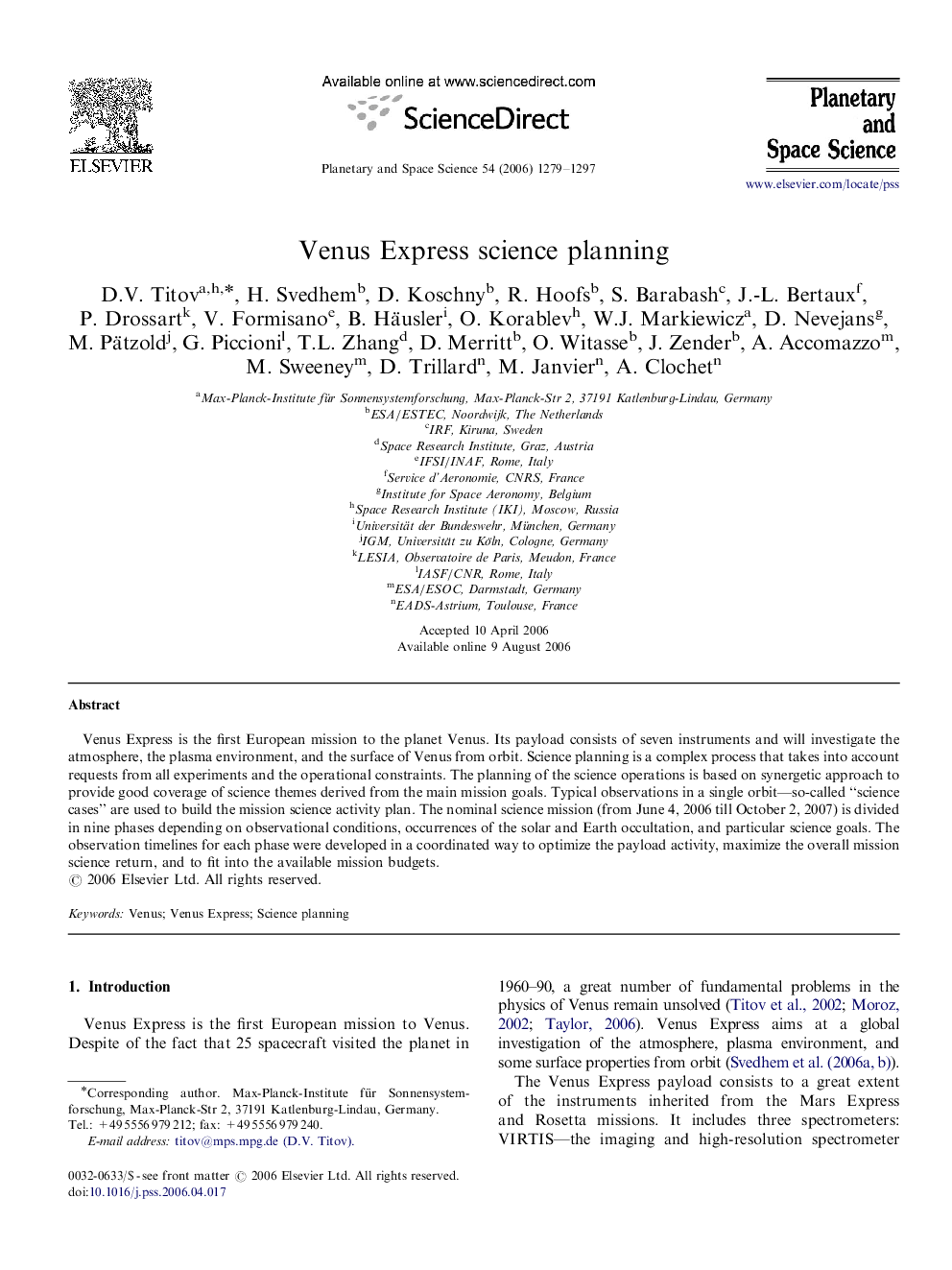| Article ID | Journal | Published Year | Pages | File Type |
|---|---|---|---|---|
| 1782392 | Planetary and Space Science | 2006 | 19 Pages |
Abstract
Venus Express is the first European mission to the planet Venus. Its payload consists of seven instruments and will investigate the atmosphere, the plasma environment, and the surface of Venus from orbit. Science planning is a complex process that takes into account requests from all experiments and the operational constraints. The planning of the science operations is based on synergetic approach to provide good coverage of science themes derived from the main mission goals. Typical observations in a single orbit-so-called “science cases” are used to build the mission science activity plan. The nominal science mission (from June 4, 2006 till October 2, 2007) is divided in nine phases depending on observational conditions, occurrences of the solar and Earth occultation, and particular science goals. The observation timelines for each phase were developed in a coordinated way to optimize the payload activity, maximize the overall mission science return, and to fit into the available mission budgets.
Keywords
Related Topics
Physical Sciences and Engineering
Earth and Planetary Sciences
Geophysics
Authors
D.V. Titov, H. Svedhem, D. Koschny, R. Hoofs, S. Barabash, J.-L. Bertaux, P. Drossart, V. Formisano, B. Häusler, O. Korablev, W.J. Markiewicz, D. Nevejans, M. Pätzold, G. Piccioni, T.L. Zhang, D. Merritt, O. Witasse, J. Zender, A. Clochet,
